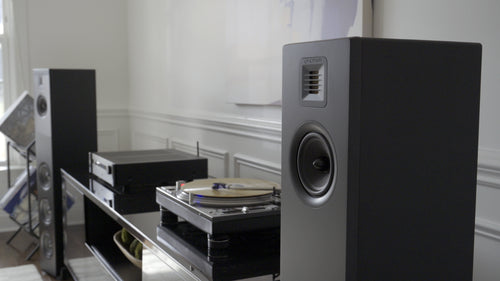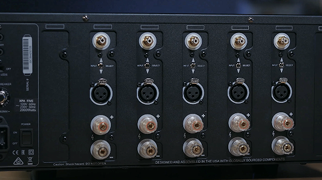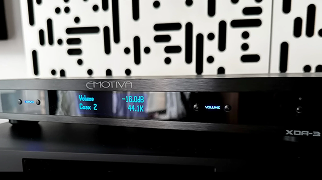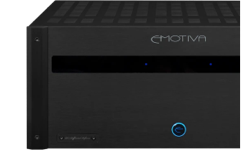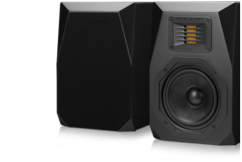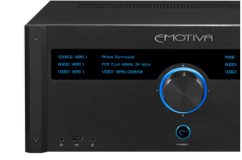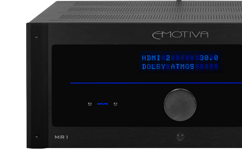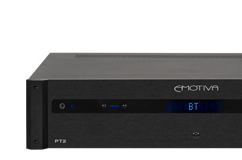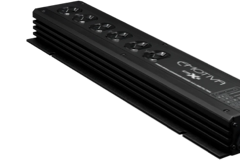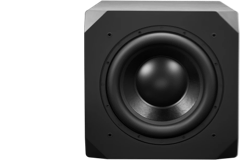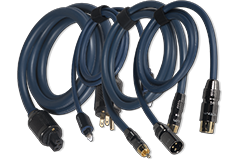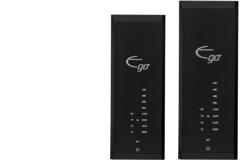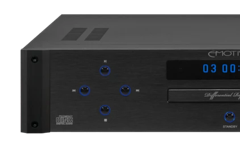
Successful audio companies – or for that matter, successful companies of any stripe – are typically products of the founder(s)’ passion for a particular product or service and the foresight to see the potential opportunity in a market area and the ability to attract and hold an ever-growing customer base.
Audio, in particular, is a market where enthusiasts, engineers, and investors often work together to build a brand that they hope will be recognized as one of the best in the category.
Emotiva Audio is no different, except that in addition to founder Dan Laufman’s passion for all things audio-related, he established Emotiva at the best possible time: in the moments before selling high-fidelity audio gear direct to consumers over the internet was commonplace.

We’d like to say that it was a calculated, carefully planned move on his part, but truth be told, it was an ideal combination of a lifelong passion for audio, business smarts, and a healthy mix of good timing and even better luck… and great gear.
Dan was getting his hands dirty with audio from the time he was in grade school. To understand how Dan and his team first approached Emotiva product design, it’s important to learn a bit about his background in and unshakable love for high-performance audio.
“To be honest, my father gets a lot of the credit, since he introduced me to audio, music, and electronics,” says Dan. “He was an audiophile as far back as I can remember. He built his own amps and speakers and the gear was front and center in the living room. I’d sit on the floor in front of a big plywood horn loaded enclosure he’d built, listening to big band music, and something in me clicked.
Like any true audiophile, Dan remembers the most minute details of his first system.
“My first real stereo is ingrained in memory: a pair of Infinity 2000A speakers, a highly modified Phase Linear 400 power amp, AR turntable, homemade discrete Class A preamp, and a kit-built Dynaco FM-5 tuner. I did all sorts of crazy things to tweak system performance, and I spent more on it than I could afford, but I had to have it!”

A passion for audio doesn’t necessarily lead to a career path, but for Dan, it was a calling.
“The bridge between hobby and career started to take shape when I was in Junior High School. I was always involved in audio and electronics, and as a frustrated “musician”, I had a habit of fixing and modifying gear for myself and friends, and once in a while I even made some money from it.” said Dan. “When other kids were involved with sports and other extracurricular activities, I was playing my guitar or building, breaking, fixing, and tearing apart anything I could get my hands on. I was also dreaming a lot about making my own stuff someday.

Years later, I had designed a high-end 12v car amplifier and I wanted to do something with it. I’d been hanging around Woodland Stereo for years and had made the acquaintance of two men I consider the most important mentors in my early professional life: Cary Christie and Arnie Nudell of Infinity, one of the legendary brands in the business. I’d been pestering them over the years and showed them other things I’d developed, but my little amp was really special and it got their attention. Arnie and Cary introduced me to their design guru, Bascom King, and he taught me a lot about the art of audio design and most importantly, how to listen. Thanks to them, and their willingness to give me a chance, my professional career in the audio business really took off.
If the names aren’t familiar to you, here is a too-brief overview of their role in audio: In 1968, Nudell, Christie, and John Ulrick founded Infinity Systems, one of the first companies to design Class D amplifiers and servo-controlled woofers. They pioneered the use of neodymium magnets, advanced planar diaphragms, and polypropylene cones in the manufacture of home and mobile loudspeakers. Bascom King is a legend in his own right and has developed many benchmark products over the years and his technical writing on audio design is legendary. It’s no exaggeration to say that, at the time, Infinity was the gold standard in consumer audio, and it set the standard for the high-fidelity audio business in the second half of the 20th century.
Added Dan: “You can say I received an advanced degree in audio from Infinity University. I’m self-taught; I was an electronics hound with an innate aptitude and talent for design who found his calling, and I was lucky enough to work with true audio industry leaders like Bascom, Arnie and Cary at a magical time in the business.”
An early career jump in audio is fine, but it’s far from a clear road to creating one of the most successful brands in consumer audio. Check in next time for the next piece in the Emotiva Audio puzzle.
Share Post


